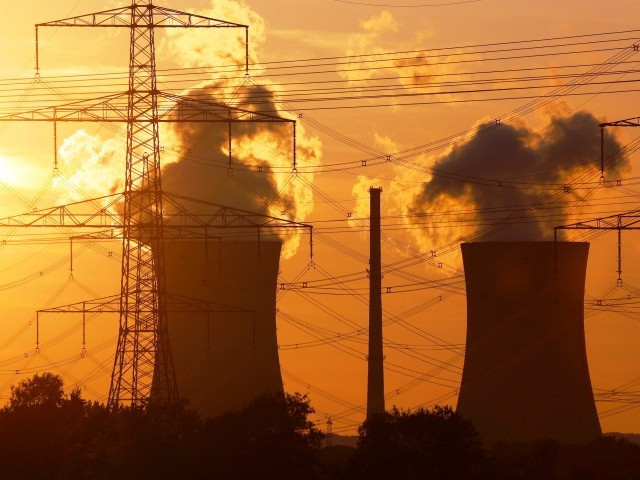Fear grows over new nuclear reactors in Karachi
ACP-1000 reactors will stand less than 20 miles from Karachi's densely populated metropolis of 20 million residents

ACP-1000 reactors will stand less than 20 miles from Karachi's densely populated metropolis of 20 million residents. STOCK IMAGE
There has always been fear among world leaders that terrorists may try to steal one of Pakistan's nuclear bombs and detonate it in a foreign country, however, some have said that the real nightmare could be unfolding in Karachi after the reactors are supplied.
The new power plants which comprise a new design are not yet in use anywhere in the world and will be each supplying 1,100 megawatts to Pakistan's national energy grid. The reactors are being built next to a much smaller 1970s-era reactor located on a popular beach where fishermen still make wooden boats by hand.

PHOTO: THE WASHINGTON POST
The new ACP-1000 reactors will stand less than 20 miles from Karachi's densely populated metropolis of 20 million residents. Many have come forward in argument against the government's nuclear ambitions, questioning whether this was the best place to build the nuclear reactor.
“You are talking about a city one-third the population of the United Kingdom,” said Abdul Sattar Pirzada, a Karachi lawyer who is seeking to get the project halted. “If there would be an accident, this would cripple Karachi, and if you cripple Karachi, you cripple Pakistan," he added.
Recommendations put forward by the US Nuclear Regulatory Commission pertaining to nuclear power plant construction state that any new reactor should be situated away from a very densely populated area, preferably with fewer than 500 people per square mile within a 20 mile radius.
The same zone where the power plants would be constructed holds about 6,450 people per square mile a Pakistani nuclear physicist wrote in Newsweek Pakistan last year.

PHOTO: THE WASHINGTON POST
Concerns have been expressed by some US diplomatic officials about China's role in providing nuclear energy to Pakistan.
Pakistan still remains to be one of the few developing nations which is still pursuing civilian nuclear energy options since the Fukushima disaster in Japan in 2011.
With three operative nuclear power plants, Pakistan has turned to China for help in expanding the capacity of these plants. Efforts are underway to double the size of the Chashma Nuclear Power Plant in Punjab, as well as to build the new Karachi reactors.
“The risks are there. You cannot discount them, but you prepare for them,” said Khawaja Asif, Pakistan’s water, power and defense minister. “We are a nuclear power, so don’t underestimate us," he added.
The ACP-1000 reactor was developed by China and cost about $5 billion each to build. The design of the reactor is based on one that France built in China in the 1980s.
Despite Pakistan's refusal to sign the Nuclear Nonproliferation Treaty and the international ban on the transfer of nuclear technology to Pakistan, the China National Nuclear Corporation will still be supplying the ACP-1000 reactor to Pakistan.
“We are going to be the guinea pigs,” said Arif Belgaumi, a Karachi architect who wants the international community to pay closer attention to the government’s plans.
“China’s expanding civilian nuclear cooperation with Pakistan raises concerns and we urge China to be transparent regarding this cooperation,” the US Embassy said in a statement on Thursday.
Of particular concern with supplying Pakistan with the reactors is the threat of terrorism with Karachi's long history of security lapses. If a major attack or accident were to occur at a nuclear power plant, activists said there would be unimaginable chaos.



















COMMENTS
Comments are moderated and generally will be posted if they are on-topic and not abusive.
For more information, please see our Comments FAQ